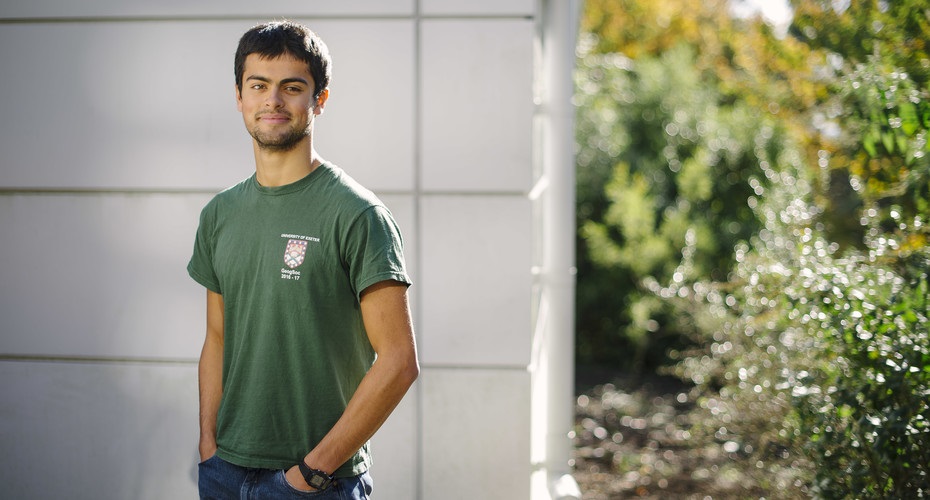| Degrees |
PhD Creative Writing |
|---|---|
| Duration |
| Start date | October |
|---|---|
| Location | Streatham Campus |
| Study modes | Full time 3 years |
Overview
- Long-established and growing Creative Writing postgraduate programme
- Supervision by established writers and scholars in fiction, poetry and non-fiction
- Part of a top Russell Group English Department
- Interdisciplinary connections across the University
- Located in a UNESCO City of Literature
- Links with the publishing industry
- Publishing opportunities
- Dynamic and diverse speaker events
- Supportive postgraduate creative community
- Award-winning alumni
88% of our English research is internationally excellent
Based on research rated 4* + 3* in REF 2021, submitted to UoA27 English Language and Literature
Top 100 in World
QS World University Subject Rankings 2022
£1.2m external research funding awarded over the past 4 years
Our programme
This programme allows creative writers to develop a substantial piece of creative work alongside a critical thesis, supervised by top writers working in a range of forms and genres. Exeter’s Creative Writing programme offers expertise across all forms and genres, including poetry, fiction, life writing, creative non-fiction, travel writing, children’s/YA, nature writing, screenplay, and more interdisciplinary and experimental projects. We have close links with the publishing industry, and our students have opportunities to connect with the UNESCO City of Literature programme, Literature Works, and The Lit Platform. Many of our creative writing students have gone on to be published, and awarded by major literary prizes such as the Costa Prize, the Ondaatje Prize and the Spread the Word prizes.
How to apply
Application should be by a full proposal. This involves setting out your aims, objectives, research questions, methods of research, a narrative description of the field of study, the original contribution to knowledge, and an initial bibliography (up to 2,000 words), accompanied by a substantial sample of creative work that is relevant to the proposal. We welcome applications from students with Distinctions at MA level, and/or with existing publications. Potential applicants can approach faculty members to discuss their proposals prior to application and, if we consider the proposal to be viable, we will be happy to review a draft to help students to make the best possible application.
English language requirements
International students need to show they have the required level of English language to study this course. The required test scores for this course fall under Profile E: view the required test scores and equivalencies from your country.
Fees and funding
Tuition fees per year 2024/25
- Home: £4,900 full-time; £pro-rata part-time
- International: £22,600 full-time
For those studying for more than one year, our fees are expected to increase modestly in line with Consumer Price Inflation measured in December each year. More information can be found on our Student Finance webpages.
Tuition fees per year 2023/24
- Home: £4,712 full-time; £pro-rata part-time
- International: £20,500 full-time
For those studying for more than one year, our fees are expected to increase modestly in line with Consumer Price Inflation measured in December each year. More information can be found on our Student Finance webpages.
Your study
The Creative Writing PhD requires students to produce either a 75,000-word piece of prose (fiction or creative non-fiction), 90 pages of poetry, or 120 pages or minutes of screenplay, accompanied by a 30,000-word of critical essay, and a short 1,000-word ‘bridging chapter’ linking your creative and critical work.
Unlike some other Creative Writing PhD programmes, the critical element of the PhD at Exeter is not wholly self-reflexive; we require an original critical thesis on a subject that in some way connects with and informs your creative work, but that also makes an original contribution to research knowledge in its own right.
Students begin the programme by being enrolled on an MPhil. By end of year 1, they submit work for an upgrade viva, pending which they will proceed to the PhD programme for the remaining two years.
Supervision
You can expect:
- High-quality research supervision to develop and nurture your potential
- A tailored supervision approach to help best suit your requirements
- Accessible supervisors who are enthusiastic about working directly with postgraduate research students
- Regular timetabled meetings with your supervisor
- 'Open door' policy to all postgraduate students - instant access to world-leading researchers who will share their expertise and ideas with you
- Regular meetings with your supervisory team, other members of your research group, and mentors
Each student has two supervisors, usually one supervisor for the creative element, and one for the critical element – the latter may be from the English department or from other departments (such as medical humanities, politics, history or geography), depending on the content of the critical thesis. We encourage students to peruse all staff profiles carefully before enquiring with potential supervisors, and to explore the content on the Creative Writing and Literary Culture website.
Why Exeter?
We have a welcoming and supportive postgraduate community, including informal reading/writing groups of PhD students, a rich research culture of presentations, talks, workshops and training sessions, and occasional access to publishing professionals.
Notable Previous Exeter PhDs with major publication success in fiction and poetry include: Ruth Gilligan, Cherie Jones, Jane Feaver, Helena Drysdale, Ben Smith, Luke Kennard, Isabel Galleymore, Eleanor Rees, and many others. All their theses are available in the library and/or electronically online.











